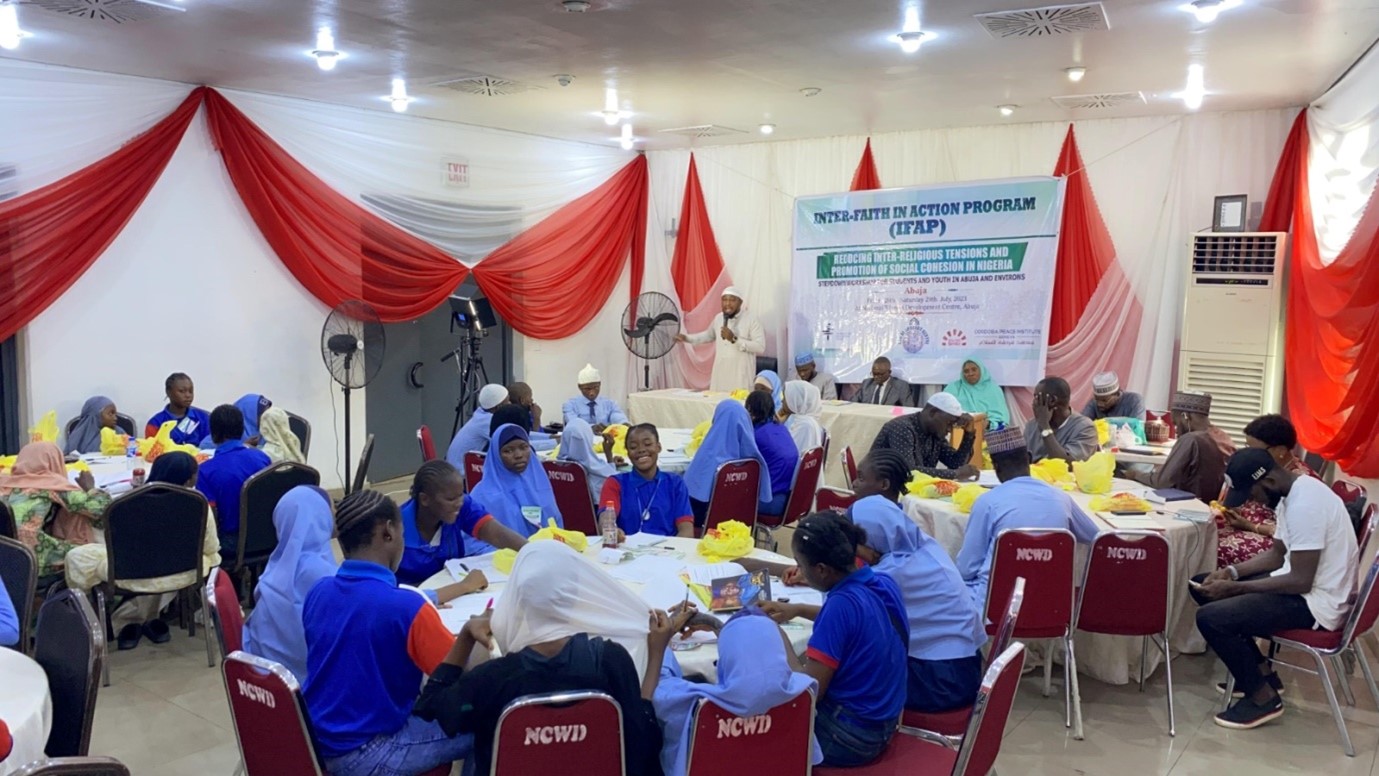Interfaith in Action in Nigeria
Youth Group Training on Reducing Inter-Religious Tension and Promoting Social Cohesion in Nigeria
As part of the project entitled “Interfaith in Action” funded by the Templeton Religion Trust, and implemented in partnership with Dar al Andalus Center (DAAC), a two-day training aimed at reducing inter-religious tensions and promoting social cohesion in Nigeria took place in Abuja on 28-29 July. The event brought together a diverse group of participants, including secondary school students and youth from various organisations in Abuja and its environs.
Day 1: Training for secondary school students
On the first day, the training began with a cohort of 50 secondary school students from different schools, representing both the Muslim and Christian faiths. The group consisted of 23 Muslims and 27 Christians, reflecting the religious diversity of the region. The training aimed to provide a basis for interfaith dialogue and promote understanding between different communities and faiths.
Three presentations were given on the day:
1. Introduction to interfaith dialogue: The importance of open and respectful communication between people of different faiths was highlighted. Participants were encouraged to embrace dialogue as a means of promoting mutual understanding and harmony.
2. Addressing Double Standards in Interfaith work: This presentation explored the concept of double standards often encountered in interfaith interactions. Participants were guided on how to recognise and address these challenges in order to promote equitable dialogue.
3. Peaceful coexistence: The final presentation focused on promoting peaceful coexistence among religious communities. Strategies for promoting harmony and mutual respect were discussed, laying the groundwork for reducing inter-religious tensions.
Day 2: Training for youth in Abuja and environs
The second day of the training extended its reach to 80 youth from various organisations in Abuja and its environs. Participants came from both religious backgrounds and both genders, making the gathering even more representative of the diversity of the region.
Sessions on the second day included:
1. Introduction to interfaith dialogue: A refresher on the importance of interfaith dialogue and its role in building bridges of understanding between communities.
2. Purpose, meaning and misconceptions about interfaith: Participants discussed the importance of interfaith interactions in promoting a united society. Common misconceptions were addressed and dispelled, paving the way for accurate perceptions.
3. Trauma management: This session dealt with the aftermath of inter-religious tensions and conflicts, focusing on providing participants with tools to deal with trauma resulting from such situations. The importance of healing and reconciliation was emphasised.
The training had a lasting impact on all participants, fostering a greater sense of unity and understanding. Both groups of trainees expressed their commitment to sharing the knowledge they had gained with their respective communities and the wider society. This commitment is a promising step towards reducing inter-faith tensions and promoting social cohesion in Nigeria.
By equipping participants with essential skills and knowledge, the training has contributed to building a more harmonious and united Nigeria.
Introduction to interfaith dialogue – Imam Hamdany Yusuf
Addressing Double Standards in IRD by Mr Akande/Mr Frank Oche
















